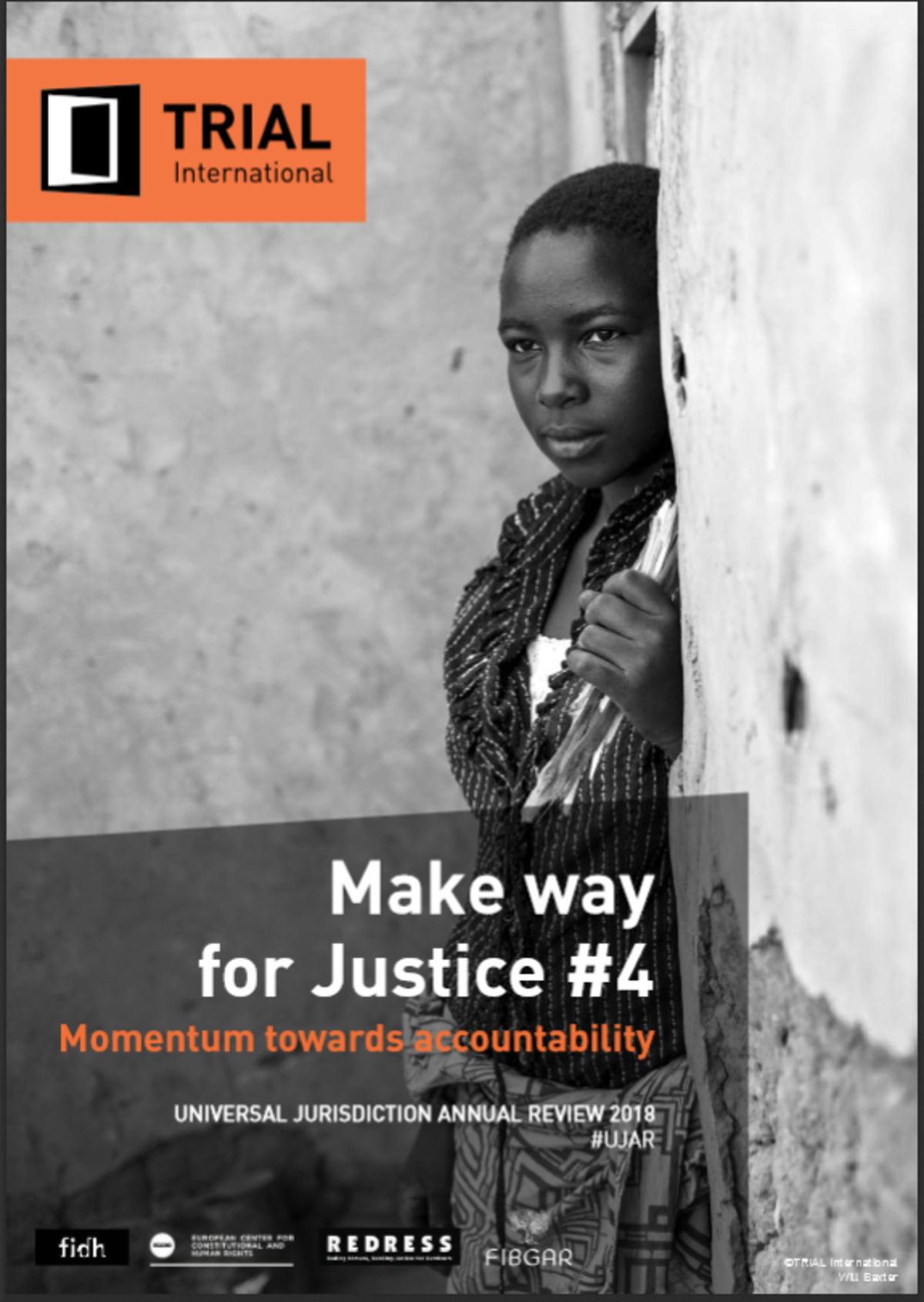Universal Jurisdiction Annual Review 2017
Study
2018
Universal jurisdiction is here to stay. In their annual review Make Way for Justice #4, ECCHR and its partners TRIAL, FIBGAR, REDRESS and FIDH illustrate the international momentum towards accountability through 58 cases, involving 126 suspects.
Rarely has the fight against impunity been so dynamic. In 2017, countries in Africa, Europe, North America and Latin America have tightened the net on war criminals by resorting to universal jurisdiction. This principle enables States to prosecute alleged authors of international crimes such as genocide, war crimes, or crimes against humanity, regardless of their nationality or where the crime was committed.
Moreover, legal interventions and investigations are increasingly started even when a conflict is still ongoing not only years after the end of a conflict. Although minor successes in the fight against impunity of powerful suspects can be noted, the imbalance regarding the prosecution of international crimes committed by western actors vis-à-vis actors from the global south remains.
To overcome the specific challenges of universal jurisdiction, a wide number of States have set up specialized war crimes units (WCU). Last year alone, these units reportedly investigated, prosecuted or brought to justice 126 suspects of the gravest crimes. Many more investigations are ongoing. “States who commit sufficient means to specialized units are leading the fight against impunity today by turning the word justice into action” says Valerie Paulet, Trial Watch coordinator and author of the report.
The Make Way for Justice #4 report also points to these achievements’ prerequisites. Strong WCUs have in common sufficient resources and staff and enjoy a high degree of autonomy as well as specialized and diversified state expertise.


